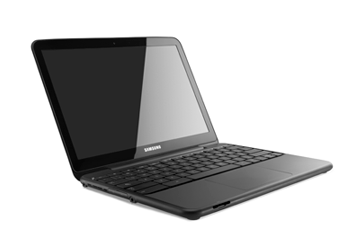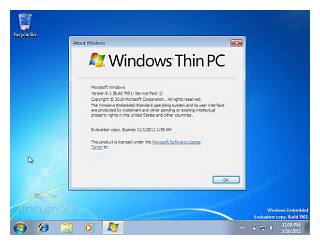Google Announces the Chromebook… Can Haz?
 It looks cool! I want one! I signed up to be notified when it is available in June.
It looks cool! I want one! I signed up to be notified when it is available in June.
Nothing but the web – Google Chromebook
“Chromebooks are built and optimized for the web, where you already spend most of your computing time. So you get a faster, simpler and more secure experience without all the headaches of ordinary computers.
Order yours on June 15th.
Chromebooks boot in 8 seconds and resume instantly. Your favorite websites load quickly and run smoothly, with full support for the latest web standards and Adobe® Flash®. In fact, Chromebooks are designed to get faster over time as updates are released.
It’s easy to get connected anytime and anywhere with built-in Wi-Fi and 3G. As your Chromebook boots up, it quickly connects to your favorite wireless network so you’re on the web right from the start. 3G models include a free 100 MB per month of mobile data from Verizon Wireless so you can keep working around home and on the go.
Your apps, documents, and settings are stored safely in the cloud. So even if you lose your computer, you can just log in to another Chromebook and get right back to work.
Every Chromebook runs millions of web apps, from games to spreadsheets to photo editors. Thanks to the power of HTML5, many apps keep working even in those rare moments when you’re not connected. Visit the Chrome Web Store to try the latest apps, or just type in a URL. No CDs required.
Chromebooks are easy to share with family and friends. They can log in to experience all of their own Chrome settings, apps, and extensions, or use Guest Mode to browse privately. Either way, no one else using your Chromebook will have access to your email and personal data.
Your Chromebook gets better and better over time, unlike a traditional PC. When you turn it on, it updates itself. Automatically. All of your apps stay up-to-date, and you get the latest and greatest version of the operating system without having to think about it. Annoying update prompts not included.
Chromebooks run the first consumer operating system designed from the ground up to defend against the ongoing threat of malware and viruses. They employ the principle of ‘defense in depth’ to provide multiple layers of protection, including sandboxing, data encryption, and verified boot.”
Plus, Betanews’ columnist, Joe Wilcox says: “Google’s Chromebook subscription program could seriously pinch Microsoft enterprise licensing revenue. The $28 per month per, user fee is bargain-basement pricing compared to what businesses now pay Microsoft for software and OEMs for supporting hardware. Google could easily take $1 billion a year in software revenue from Microsoft, says one licensing expert, with the number substantially growing over several years.” Wow!

 A new version of the Release Candidate is available for Windows Thin PC. Windows Thin PC is designed for Thin Client use in VDI environments. (I cross-posted this on
A new version of the Release Candidate is available for Windows Thin PC. Windows Thin PC is designed for Thin Client use in VDI environments. (I cross-posted this on